|
It was around the time the news broke that she made her decision: she and Bryan were over. Their year of stale coffee grinds and kale chips, of serotonin sleepovers and Nintendo narcosis had reached its terminus. It was time to move on. Her decision had nothing to do with the singer; she isn't a fan, and probably wouldn't recognize one of his tunes if he were serenading her, as if that were possible now. But this thing with her and Bryan, it's like a film without a climax, without any development or even opening credits, only a repetitive denouement fizzing toward entropy. She needed to get out as soon as possible. She needed resolution. Which is how she explains it on her weblog. She can't tell him directly, not yet, so she uploads her beef onto the internet first. It was right after the push notifications materialized on her phone, she says, that she realized she and Bryan had to part ways. It's okay that she's posting this before telling him in person, he doesn't read her writing anyway, and maybe that's part of the problem. Overall, he's a decent enough guy. Washes her dishes when he eats over. Cleans out the viruses from her laptop. Introduces her to awesome new apps, and gives great foot massages. The sex is okay, not exactly shock and awe, but better than with most of her exes. In the bedroom, he's much the same as he is anywhere else. He puts all her needs ahead of his own. Except one. The one that, it seems, only his absence could fulfill. The truth is, for the past few weeks, she's been experiencing this bloated sensation within her gut, something not unlike a phantom pregnancy, as if a sort of insemination has occurred, and a zygotic union formed, though engendered in pessimism, and more futile than fecund in its elaboration. Maybe the signs have been there all along. All those tweets about the #PointlessnessOfEverything. (Though people assumed this was just coming from her natural poetic predisposition to melancholy.) Whenever a Facebook friend changes their relationship status back to Single, she's usually the first to hit the like icon. As for her own status, she never bothered updating it. Not even after Bryan changed his, a month after they started seeing each other. Not even a year in, when you can't quite hide from the fact anymore. One of her readers comments that she should be careful about acting impulsively. To make sure she isn't, she goes to Songza. Selects a playlist of romantic songs. None are by teen pop idols; they're by people her own age or older, all experts at discerning true love from the counterfeits. All averring how nothing beats the Real Thing. True love lasts forever; it doesn't tell lies and it doesn't let your attention wander. It's something you can possess without the requirement of a loan or a 30-year mortgage. It's the cosmic life-force, indeterminate and abstract, that can nevertheless be easily encapsulated by a 3-minute tune in a major key. She listens for almost two hours. She eats a couple bags of kale chips and drinks a power shake, but her heart stays just a heart, in all its beating cardiovascular regularity. She will make an appointment with her GP to have her prescription strengthened. He will ask her routinely if anything significant has changed in her life since the last time. She will routinely reply that nothing has. Not very long ago, she was this college girl who was bored with language yet who spent an inordinate amount of time trying to compose poems for the internet. When she couldn't find a suitable word that expressed the right sentiment, she would make one up. Not nonsense words like the ones found in Dr. Seuss or Lewis Carroll, but the kinds Joyce might have invented. One of her poems was an 8-line piece made entirely of neologisms that would've suited Finnegan's Wake. Like interlexion, which denoted the space between two words on a page (which she considered to be as meaningful as printed text); and marginitalia: those erotically-charged doodles you often make in the margins of your class notes; and disillment, a sort of hybrid of disillusionment and an obscure illness traceable to acute alienation. She soon packed whole megabytes with these coinages and their definitions. Until she got bored with them too, and just let them languish in a forgotten USB stick. Then she tried learning a few foreign languages. French, Swedish. God morgon, Jan. God morgon, Brigit. Hur mår du idag? Or, Bonjour, Philippe. Il fait frois dehors, n'est-ce pas? And that's when she understood the crux of her dilemma: it wasn't the words she found uninteresting, it was the things they signified. It was soon after this that her doctor signed off on her first prescription. She needs a new word for her relationship with Bryan. Something that should exist by its own merit but cannot. Something that every girl says she wants, yet would run the other way from given the opportunity. Something that should best remain undefined, if not unspoken. And yet she has to give him a reason why she's pulling the plug. But what can she say? Bryan, our relationship has undergone a semantic shift. We are broken syntax, a fragment of a conditional sentence with a missing apodosis. Our metaphors lack both figure and ground. We're a cliché; our lexicon has kicked the bucket. Bryan, there is no real love. There are only icons and idols in a godless world. A stage that has crumbled into a quintessence of dust. It was so much easier with her other boyfriends. Those relationships all died of natural causes. After several overheated, door-slamming arguments (Steve). After she found out the guy was seeing her best friend on the side (Tom and Allison, those shits). After he moved to Singapore (Dave; though he still private messages her sometimes). But Bryan hasn't aggrieved her. He doesn't aggrieve people. He's always available she needs help unclogging a drain. Comes over at the drop of a hat to fix an electrical short. He knows the difference between series and parallel circuits. And he can bake, too. He's the sort of person who will pine away for a new PlayStation 4, then fantasize aloud about starting up an organic farm in California. She drops onto the sofa and reaches for the remote. Almost no one on TV is talking about the dead singer. MTV3 is running Never Say Never, but with more commercials than film footage. On CNN, AJ and Nischelle spend three minutes debating the finer nuances of his post-adolescent material, now known as his Late Period, before shifting to a discussion about the next Bachelorette. Fox, meanwhile, has a tasteless exposé on child celebrity drug problems. MTV, MTV2, VH1 and Bravo are all running clips dedicated to Caitlyn. Disney is showing reruns of early Hannah Montana episodes. The phone chirrups. Texts from a couple of girlfriends who saw her blog. Heidi wants to make sure she isn't afraid she will never meet another decent guy and die a lonely death. Lise asks whether Bryan hit her or committed a criminal act. Both invite her over for TV, Snuggies and Doritos. She assures them she's fine, that Bryan hasn't done anything wrong, that they just ran out of steam. What she doesn't mention is how there never was very much steam to begin with. That gravity is all you need to propel you when you're travelling on a perpetual downward slope. It's funny how the one thing all couples do at the beginning of every relationship is to replay the dissolution of the last one. Maybe it comes from a natural human need for dramatic continuity, for assurance you aren't just happening in medias res. But these conversations must also have a practical purpose: a way of sussing out the other's moral and ethical base, as reflected in his or her reactions to the breakup narrative. Are you showing me an adequate amount of sympathy right now? And an adequate degree of antipathy toward my ex? These conversations act like a big Yield sign on the road to the bedroom: So long as you don't repeat his mistakes, we'll be fine. Oddly, Bryan never talks about his exes. They've run into two or three of them about town, and he always behaves courteously toward them. He never let on what led to their breakups. As if he didn't want to give her any ammunition she could use later on. She opens the folder in Google Drive where she keeps drafts of all her poetry. Opens a document entitled Stuff about Bryan. She wrote this a few weeks after they started seeing each other, random things that either did or did not endear him to her. Like how his face dimples when he passes a bakery selling Dutch crullers. Or how his nipples aren't aligned. How he is the only partner she's had who will willingly watch Girls with her. And not just for the sex scenes. Bryan's like the only guy on the planet who doesn't look at net porn. It isn't for moral reasons, he says; he just thinks the videos lack imagination. She says she thought that's why they make them, for people without imaginations. He says there's no point frittering with fantasies when you could be enjoying the real thing. It was weird to hear him say this. He doesn't listen to popular music. Another thing about Bryan is that while he isn't afraid to show his emotions, he doesn't cry much. There was the one instance he teared up a little after Marnie broke up with Charlie for like the three-hundredth time. And the night he took her to see a production of Lear, and his cheeks moistened at the end when the old man died. Her own eyes couldn't have been drier if they were constructed from cardboard. It wasn't a real old man. His daughter wasn't really his daughter. They were characters. Played by actors. On a stage. The only time she caught him weeping openly was after his office issued the Employee of the Year award to someone else. All those nights he took work home, and weekends too, he bawled. Days before, he went around to everyone's cubicle canvassing their support like a politician. A colleague of his later told her there were six nominees, and only seven people bothered voting. One staffer got two votes, the others only one. She didn't ask the colleague if Bryan was among the nominees. Are you kidding me? He wept? This was Lise, replying to her text. Yes. He takes the Employee of the Year award that seriously? Yes. How sweet! Lise didn't mean this. Her comment was accompanied by a sarcasm emoji. What she was really saying was: Get the fuck out before it's too late. In a few hours Bryan will be over. He will venture a cheek kiss or shoulder pat or make some form of respectful contact, sit on her chair, rest on her couch. He will carefully thumb through a magazine from her coffee table: The New Yorker, Utne, Harper's, Women's Health. He will treat her space with a display of familiarity bordering on intimacy, and yet with the same solicitous deference to personal boundaries he shows her own body. He may or may not be wondering: Should I ask her to move in with me? He may or may not be dreaming of marriage, of raising children together someday. He probably would be willing if she told him she wanted to. He will ask her what she's done today. Whether she's written any new poems or anything. Then he will bring up the news. They will exchange speculations about whether drugs or alcohol were involved, or whether it was by the departed's own hand. He will make an offhand joke about some conspiratorial theory he read on the Deep Web. She will not laugh. She will say there is something she needs to tell him. He will ask if he can pour himself a glass of water first. She will say of course. He either will or will not reach for an ice cube in the freezer. He either will or will not ask her if she would like something stronger for herself. When she is done, there won't be tears. He will simply ask in a quiet voice if he can have a few minutes to gather up his things. He will circulate through the apartment like a spent zephyr, careful not to touch anything that doesn't belong to him. He won't even bother asking her why. In all probability he understands that all breakups are the same, in that they are as senseless as the premature death of a young celebrity. Both depend on an iconology of permanence to mask their fragility. After he leaves, she will turn the TV back on. The newsman will give the time and location for the funeral. He will name all the A- and B-listers expected to be attending. It’s unlikely, however, any one of them will weep either. ABOUT THE WRITER
Marc S. Cohen is a writer, artist and musician born in the United States and residing in Canada.
1 Comment
Her distinctive analogue shooting style and avant-garde use of composition have brought attitude to luxury brands including Gucci, Burberry and Balenciaga. With a background in Fine Art, Atlanta Rascher's striking book 'Spiders and... girls' combines her photographic auteurship with clean-lined, timeless sartorial looks and automatic illustration. The result is at once stylish and emotive. But, more than that, the book is an honest expression of who Rascher is as a photographer and artist. CKM spoke to Rascher about composition transcending discipline, constraints as creative freedom, and painting with clothes. Before turning her focus to photography, Atlanta Rascher was a painter. In ‘Spiders and …girls’, her ‘soul bearing’ book, Rascher combines film photography and fine art for the first time; an exercise which made her nervous at first. Aware of the conceit that artists should stick to one discipline and keep their focus there, and seeing drawing as a more intimate practice of putting thoughts and feelings directly onto paper, with no intermediary camera lens, Rascher embarked on her most personal project to date. Of this decision, she recounts, ‘I wanted to stop thinking how others perceive me and just bring together everything I did, and still do, enjoy without having to justify myself’. Beyond illustration, wherein Rascher believes that ‘ultimately drawings are always projections of oneself’, the book is personal in other ways, too. To make the project as honest as possible, Rascher organised the clothing for the photographs herself, (‘I specifically don’t want to call it styling as it has little to do with fashion, it is more about shapes and colours’), as well as scrapping hair and makeup and stripping the crew down to a minimum. These choices made room for Rascher to express herself without the influence of others. With this freedom, she also set herself constraints; shooting a minimal number of frames (around five to seven per girl), spending only 10-15 minutes with each girl, from dressing to shooting. Visually, ‘Spiders and… girls’ can be seen to combine structured, minimal fashion looks with freehand illustration. But more than that, it feels like being drawn into a distinctive mood as communicated through Rascher’s evocative use of composition and colour. It is not the girls (drawn or photographed), or their clothes we remember most, but the way the scenes made us feel, and where they took us. This ability to spark the imagination is probably why AnOther magazine asked Rascher to translate the character of Balenciaga Paris’ scent into a photographic series. For Rascher, her work has little to do with fashion; it is applied photography. Rascher refers instead to ‘clothing’, and rather than styling she talks about ‘dressing for the purpose of a picture’. Like the compositional relationship between illustration and photography in 'Spiders and… girls’, there is a strong relationship between Rascher’s approach to her different artistic practices. Rascher explains, ‘in a sense the photograph is like painting with colours covering larger areas, whereas the drawing is just the outline of those spaces and shapes. Somehow, I feel they should complement and enhance each other in describing an object or situation each with a different approach, comparable perhaps with speaking in a different language saying the same thing.’ Perhaps it is fitting, then, that Rascher describes dressing girls for shoots as ‘placing colours and shapes into the frame’. Throughout ‘Spiders and… girls’, Rascher’s overlaid illustration appears to mimic, or extrude from, the figures in her photographs. However, Rascher attributes this apparent visual relationship to her enduring artistic sensibilities, form free from medium, rather than one as a response to the other. ‘I think perhaps they naturally fit as I have a certain sense of composition which stretches across all disciplines’, Rascher explains, ‘when I worked as a stylist I would also think of it as putting colours and shapes into place to complete an image’. In this way, ‘Spiders and… girls’ is another example of the transcendent nature of Rascher’s artistic eye; Zowie Broach of Boudicca once said of Rascher that, when styling for fashion shoots, she ‘paints with clothes'. When speaking about her influences, Rascher’s approach to photography is explained in part. She is inspired by family albums, commenting that ‘there seems to be more mystery around the author or multiple authors who create images of a random mix of styles that add to the excitement.’ She is intrigued by their semi-chronology and the anonymity of the photographer; and how breaks in that chronology, such as an earlier scene recounted from a different angle later in an album, can ‘read like a flashback’. Rascher is drawn to these repetitions, wherein ‘the same set up just a few seconds later can produce a very different mood and image’. This style of observation is constrained by the intentions of fashion photography, which ‘doesn’t usually allow for such play and repetition; a different credit for every page is the objective’. Conversely, Rascher notes that ‘an expression or a moment can be so strong that the repeat outfit hardly bothers me.’ 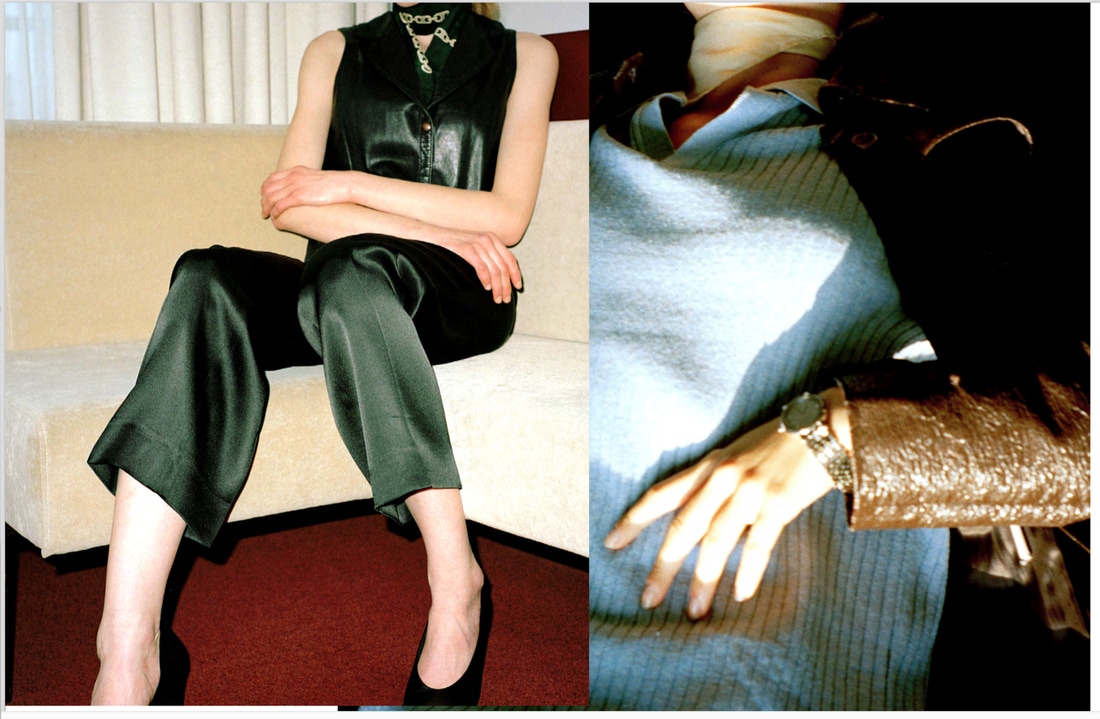 ‘Spiders and… girls’ is the culmination of a project defined by creative freedom and spontaneity; working in response to limitations and opportunities, including those of form. Starting with conversations with art director Olu Odukoya, and the simple concept of producing a personal work, Rascher recounts that ‘a lot of the things happened because they didn’t happen’. Also, some unplanned things did happen, such as bringing Ann-Kathrin Obermeyer on board to style the cover story. Throughout the process of making the book, Rascher embraced the arising constraints and changes, saying they ‘made for some spontaneity and an element of surprise’ for her ‘image making as well as the book in general’. The process of making this beautiful book was labour intensive and all-consuming. But the result is such a clear statement as to Atlanta Rascher’s point of view. And, she’d do it all over again: ‘it’s a really great feeling and also a luxury if you can switch everything off and just let yourself get lost in this world you are projecting and creating. Yes, I would love to get stuck into the next one.’ ABOUT ATLANTA RASCHER
See more of Atlanta Rascher's work on her website. You can also find her on Instagram. WANT A COPY OF 'Spiders and... girls'? You can purchase a limited edition copy of the book via the Galerie für Moderne Fotografie, here. Alternatively, you can purchase a copy directly by contacting [email protected]. An orange cab headed south through the pocked intersection at Kipling Avenue and Bloor Street, a white cloud pluming from its exhaust. From the curb, Rebecca spotted the vacancy and lifted her hand tentatively to hail it down. She watched the cab driver scan the sidewalks, the overcast sky stinging sleepy pedestrians with diffused light. He focused on a crew of safety vests and steel-toed boots walking into the Coffee Time at the corner before nodding in her direction. Rebecca dropped her arm and grabbed her son’s wrist as the cab pulled up. Sometimes Rebecca had difficulty finding a cab to take her midtown. In the past, she had a few drivers confide in her that a handful of customers doing small trips is more profitable than one going the distance. “The payout’s all in the starting rate, lady,” they told her. With this in mind, Rebecca never revealed her destination until the wheels were turning beneath her, in hopes that her ejection became more inconvenient than her request. The driver waited patiently as a sleepy-eyed boy crawled in, followed by his mother who slammed the door shut, causing the hanging pine scent to shake its stiff hips. Rebecca read the card in the plastic sleeve on the passenger’s headrest: Henry R. Knobs, operator since 2002. After merging into the left lane, Mr. Knobs finally asked where they were headed beneath his ungroomed mustache. “45 Mount Pleasant Road,” she answered flatly. The driver rolled his eyes and set the fare meter glowing. Rebecca’s son placed his Thomas & Friends knapsack on her lap and lay across the bench to nap. The seatbelts hung helplessly in their corners. The cab driver’s eyebrows danced like pinball guards in suspicion, she could see them swelling each time he glanced from the road to the mirror. A waving pedestrian, whose unlatched briefcase spilled over with mishandled reports, went ignored as Mr. Knobs continued to peer at his passengers. Rebecca remained composed under the obvious scrutiny. The split-ends of her hair were curved tusks next to her jaw. Her high and round cheeks read more sallow than their broadness promised. Between the dark-circles beneath her eyes and the premature creases at their sides, a thin-lipped smile was her best disguise. She was a faded photo of a girl in her prime. At a red light Mr. Knobs grabbed a pistachio from a container on the seat next to him, and adjusted his posture on his beaded seat cover. “Heading to work?” he asked, discarding the husk into his armrest and grabbing another nut. Rebecca looked to the plastic bag nestled between the seat and the triangle made by Eddie’s bent knees. Her yellow rubber glove pointed skyward, as if attempting to make an interjection. Rebecca inhaled the stale scent of weathered leather, stuffed the glove back in and nodded a timid confirmation. “Ma was a cleaner too,” Mr. Knobs managed to share through his vigorous chewing. “Made the mistake of never wearing those gloves. All those chemicals seeping into her hands, all day long,” he shook his head. “Left her hands as cracked and rough as the desert floor.” Rebecca ran her hand over her son’s soft hair. The resurgence of guilt was insurmountable; the 24-year-old mother knew her world was a last grasp at a last grasp, every hold precarious. A passing car’s glare made her wince. She caught the driver’s expectant eyes in the rearview. “Isn’t that right?” the driver turned his cheek to look at her. “I’m sorry, what did you say?” “Cleanliness is next godliness is what my ma always said.” Rebecca gave another appeasing smile to the overused adage that was regularly flung at her. “How come you’re driving out so far anyway? If I remember correctly, we didn’t make enough money to spend on luxurious rides downtown.” “I’m late.” The cabbie’s chin jutted into the air in a zealous nod and hum, and then flicked his left-turn signal on. “Could you make a left at the next light, it’s a bit shorter.” Mr. Knobs perked up at the instruction and turned the signal off, “Sure thing miss. Been late before I take it?” “The babysitter isn’t always reliable,” she lied. There were always a few days a month she had to sacrifice the service after paying rent. “Ah,” he nodded. “Ma never trusted us with anyone. She would’ve dressed us up as mops and hidden us in pails to keep us nearby. I can’t be sure if it’s because she was more worried about us or about the people she was going to leave us with.” He gave a hearty laugh, “Come to think of it, she might’ve just wanted to put us to work too.” She watched his smile fall with the high viscosity of longing as they crawled to another red light. Rebecca embraced the muted reality of the cab: a silent radio, a blurred idyllic daydream. For a moment she did not regret the waning morality of it all. A second or two that did not rely on wit and luck to propel them forward was a welcomed relief. She scanned the roads with the careless ease of window-shopping. In the entrance of an abandoned storefront, a group of drifters lounged on a flattened cardboard box. They were the vagrant youths who used their lifestyles as a statement to rally against the institution. As a parent, Rebecca spends every day trying to cram into the shallow pockets of the stingy system. She knows the frustrated shakes following a discarded plea for help, and the wafer-thin dignity that remained to quell the temptation to ask for more. Just to gain enough. In some ways, she envied their freed spirits, whilst neglecting the cold winter nights, the fights and abuse they endured for a communal rebellion. Blue-eyed Eddie. Rebecca looked down at her son. His eyes moved left and right behind his translucent lids. She resented that beauty could be born from empty promises, that a lifetime could be bred from indifferent encounters. She lifted her eyes to the corner to see the bearded boy kiss a girl before turning to take a drag of a joint. A rolled sleeping pad buckled at the backpack’s base kept the leverage in the reclining boy’s favour. The taste of spite coated her unarmed tongue. But the bitterness was hers alone. Rebecca looked over her shoulder to keep sight of the smiling girl as the cab moaned forward. The young mother felt compelled to warn the girl of her own hardships. But perhaps she wouldn’t agree to take them on; indifference didn’t scatter at the sight of responsibility in all its victims. Rebecca wondered if after all her errs and fruitless attempts at a good life, her son would avoid the daily uncertainty of being in luck’s good favour. If he rolled doubles maybe he could choose his fate. Two phantom die with twelve unmarked sides rattled in her pocket as they lurched to another red light. An orange cab pulled up beside them. Rebecca was parallel with the attractive woman in the backseat. The young mother propped her elbow on the doorsill, and eyed the passenger safely behind her partially hidden face. It was difficult for her to swallow the envy that awoke at the sight of the woman’s sheening hair and rouged cheeks. Rebecca traced the woman’s posture and mindlessly straightened her own. She looked to see if there was a child across her lap, holding her breath so as not to fog up her view. But, before she could confirm her suspicions, Mr. Knobs inched the car forward, and Rebecca met the suspicious stare from the suited woman. The warm wave of embarrassment that rolled through her was quickly doused when she came parallel to the icy stare of the other driver. She caught his eyes cinching in recollection, as his mind flipped through a frequently visited blacklist of passengers. Her hand instinctively tightened around the bicep of her son’s cotton sweater. She turned her face away to stave off his recognition. Leaning passed the passenger seat headrest she searched for the countdown. Pedestrians jogged to make it safely across in the last few seconds before the orange palm appeared. Below the wheel, she looked at her driver’s right loafer giving a tight-lipped scream for it to move. The car pulled forward. Rebecca’s back remained rigid with tension, unmoved by the increasing horsepower. The boy pulled open one eye and lifted his cheek from Thomas’ inviting smile. He watched, as she looked hard at the road ahead driving the cab with her stare. His forehead was pulled together at the brow in angst. With the cab behind them, she ran her soft hand over her son’s eyes after winking a consolation. His strange blue eyes resumed their imitation of sleep. A crackling disturbed the silence as Rebecca’s hands fidgeted with the plastic bag, and then, self-conscious, moved to the strands hanging at the base of her neck to calm her. They travelled west on St. Clair, the streetcars whining ahead, passed the jade awnings of Rolex headquarters. The digital clock read 8:28 a.m. “It would be real mean of them to fire you for being late,” said the cab driver. “Especially knowing full well you have a little boy to clothe and feed.” She nodded knowing Eddie was a debt she’d agreed too. A thin smile returned. “It ain’t easy to gain the loyalty of people who don’t think too much of you,” Mr. Knobs continued. “But it can be done with some hard work and integrity. Ma raised three of us on the pay of cleaning jobs. Don’t know how, but she did.” On Yonge Street the cab turned left and slowed unexpectedly; the driver whistled at the queue of traffic ahead. Siren lights. An accident. “This might be a while,” the driver said over his shoulder. He grabbed another pistachio and tossed its shell into the mass grave at his elbow. Rebecca looked out the window; the entrance to Mount Pleasant Cemetery was less than a half-block away. The meter read $27.25. Rebecca whispered to her son. “Babe, we’re here.” The boy pulled himself up, the tracks of Thomas & Friends pressed into his clear skin. Straining to see above the dashboard he asked, “What happened mommy?” Mr. Knobs opened the car door and placed one foot on the pavement, squinting passed the gleaming car roofs to the accident. She looked back at the long line of idling cars inches away from the left side of the cab. Gridlock. Guilt drowned in the high tides of adrenaline. Rebecca opened the door and helped her son leap onto the asphalt, before following. She closed the door lightly behind her, and walked a couple of meters backward to avoid being spotted in Mr. Knobs’ periphery. He scanned the roads, staring into the car windows of the slow procession coming toward them for signs of an explanation. They slipped between two stopped cars in the left lane. The boy ran ahead of her. He knew what was at stake. At the stone pillars, she watched Thomas the Tank Engine pull in. Over her shoulder, she caught the conflicted expression on Mr. Knobs’ face. She cringed under his ceaseless stare; his eyes became an unsettling sight of retribution cowering beneath pity. Integrity was a luxury she could not afford. She listened for the cries of justice; she, too, was desperate for fairness. But none came. The distress in his brow vanished. He picked at something between his teeth and crouched back behind the wheel. Rebecca memorized the “451” decal on the car door and, with shame curling her shoulders, ran into the cemetery to catch up to Eddie. She followed Eddie’s racing ankles as they blinked in and out of sight beneath the frays of his pant cuffs. His knapsack jostled, as he turned left into Section A, the eastern most point of the property. The sharp turn didn’t cause his momentum to falter, and Rebecca began to run faster to keep him in her sight. The car horns echoed against the tombstones and were absorbed into the grassy plots. Passing under a pair of quivering red oaks, Rebecca watched Eddie as he flew past the chain link fence to access Moor Park Ravine. She was impressed he remembered the route since the last time. But the checkpoint was an unsecured paddock beyond where her tending could reach. Unease came over her as she entered the shaded canopy and tiptoed down the hill. She could barely follow the brief glimpses of blue sprinting toward the abandoned iron bridge. Rebecca licked her dry lips, panting to keep up. Overcoming her was the subtle panic of waiting for something that should have already come. As when a bystander waits for a diver to break the water’s surface, every moment of refrain coddles doubt. Eddie should have looked back to spot her, but he pummeled onward. She feared the cutting glare of the betrayed when he turned, a look to tip the teetering wall of misplaced faults. She watched him brush the curls from his eyes before smiling back at the gap between him and his opponent. He kept his lead as he sprinted up the steel staircase to her client’s street. Rebecca eased a bit; she feared that someday he wouldn’t look back. That he’d finally caught onto her. Realizing that his mother was a thief, he’d feel too betrayed to understand her trials. If he knew that she was ashamed would that turn his judgment onto the system that caught her in an infinite game of cat and mouse? Rebecca was certain however, that someday he’d realize she was merely the shadow of a mother. Eddie, flushed with exertion, waved to her from the finish line at the top of the staircase. “I win again!” he grinned as Rebecca reached him. She tucked her apprehensions into the corners of her curled mouth and took his hand. There was so little for him to brag about. “That’s right baby.” She glanced left and right along the street before turning down to house number 37 with unnatural prowess. “It’s three – nothing,” he boasted, unaware of the cab coming toward them. Rebecca instinctively tightened her grip to keep her son from running. ABOUT THE WRITER Cristina De Miranda is a Toronto-based fiction writer. beige and blue the beak of a bird touches water. in the belly of the Indian ocean the tides are calm today. waves form foam and sounds white material residues the clasp oncoming sharp memory folds in the old. a feather is left in the sand eternal skeletons of mollusks left behind. seashells, full of calcium carbonate the mineral of waters. the nest, flashing around the pulse of sand fine footprints filled with reverberations of life. contextual under umbrellas of positioning a person under the rubric of a sphere and a double-headed dragon with fire in his mouth falls into a pit of darkness and tugs at its black hair and the whiteness of shame it hangs it hangs it hangs within the underbelly of emphatic resounding nothingness. Communication Disclosure I. There was a crumpled paper which lay on the table with a dark wood finish (Made from the bark of a rosewood tree). "What are you thinking?" "Thinking, nothing." "There is a lunch get together this Sunday." Something the lack of an answer explained. The synthetic perfume perforated the room. "Did you hear her husband just lost his job?" "My neighbors cat ran away somewhere." "This pearl necklace is of freshwater pearls." "The rain always spoils my silken dress." II. (By now, Romeo stood beneath Juliet's balcony.) "Are you reading Shakespeare again?" Quietude pervaded and I continued reading in a corner. Guests came and went through the narrow passages flippantly, asking questions and not waiting for answers. (As though their questions were asked for the sake of questions being asked; for no answer.) Under artificial lighting, the moths played. "Hurry up, don't you want to be among the first in line for the buffet?". They lined up like a string of ants around a giant anthill. III. "They made an April fool's joke and he was fooled." "That chap would not know of forced rudeness." "The entire office was laughing about his - O salad." "Iceberg lettuce leaves and tomatoes again." "I had told her to keep the romaine and butterhead." "The cutlets have less crunch and the ketchup is soggy." "This chocolate soufflé has saved the show." The sounds and fury that passed lingered in the banquet hall. IV. "Are you still taking those birth control pills?" "Did you see he has purchased a new automobile?" "Automated brakes". The grin on their faces increased. (The sounds of horns increased as the cars lined, one by one.) I was among forks and spoons and silvery plates alone against the entire crowd pressed together. "Are you still reading Romeo and Juliet?" (They had both died by then.) The night bed had red sails and I walked in the company of a solitary lane, the south-west wind and tall trees. ABOUT THE POET
'Sneha Subramanian Kanta finds credence in non-linear forms of looking. Avant-garde art, untold stories and tales of refugees are matters close to her heart. Her work is forthcoming in Fallujah Magazine, ZOOPOETICS, Serendipity, Erstwhile Magazine and the first print anthology of Peacock Journal and elsewhere. She is a GREAT scholarship awardee, pursuing her second postgraduate degree in literature in the United Kingdom. She believes in forms of dissents and uprisings, renaissance, handwritten letters and the word et cetera.' 4/4/2017 1 Comment PAINTINGS: Karolina AlbrichtOil paintings by Karolina Albricht. Albricht's solo show 'The Unknown Land' opens Sunday 9th April at Vinarius, LondonCKM SAYS
CKM responds to the role perspective plays in Albricht’s abstract pieces. This, and the depth created through use of dark and bright tones in her limited colour palettes, provide a surreal sense of almost-space. ABOUT THE ARTIST See more of Karolina Albricht's work on her website. |
Archives |



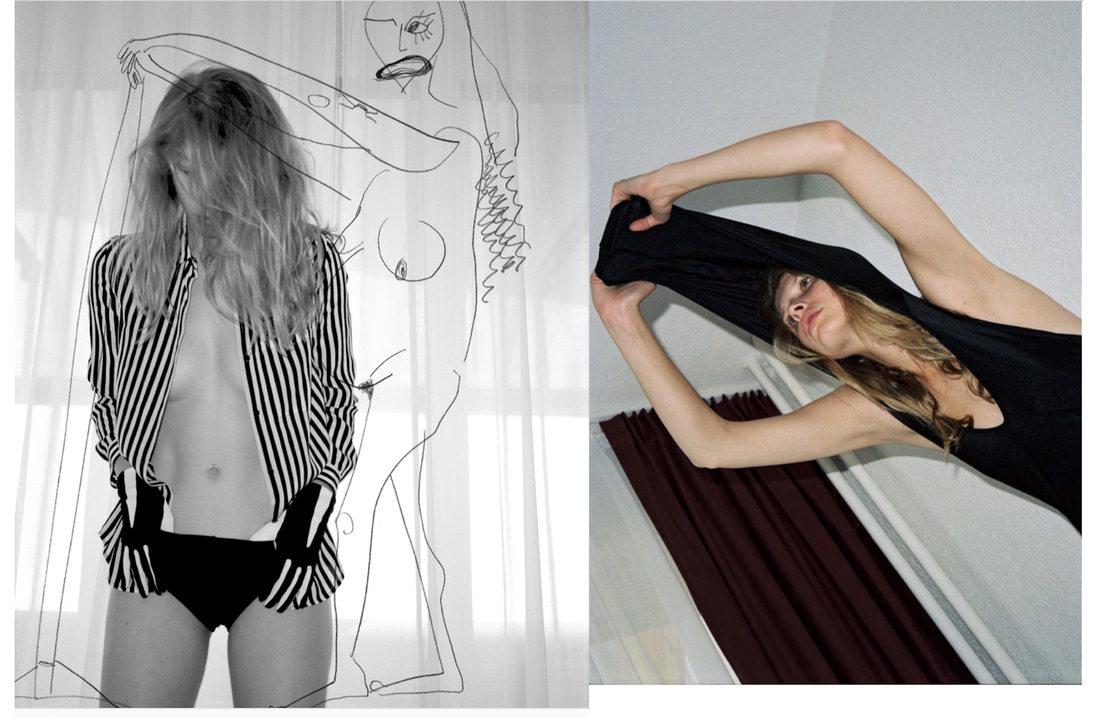
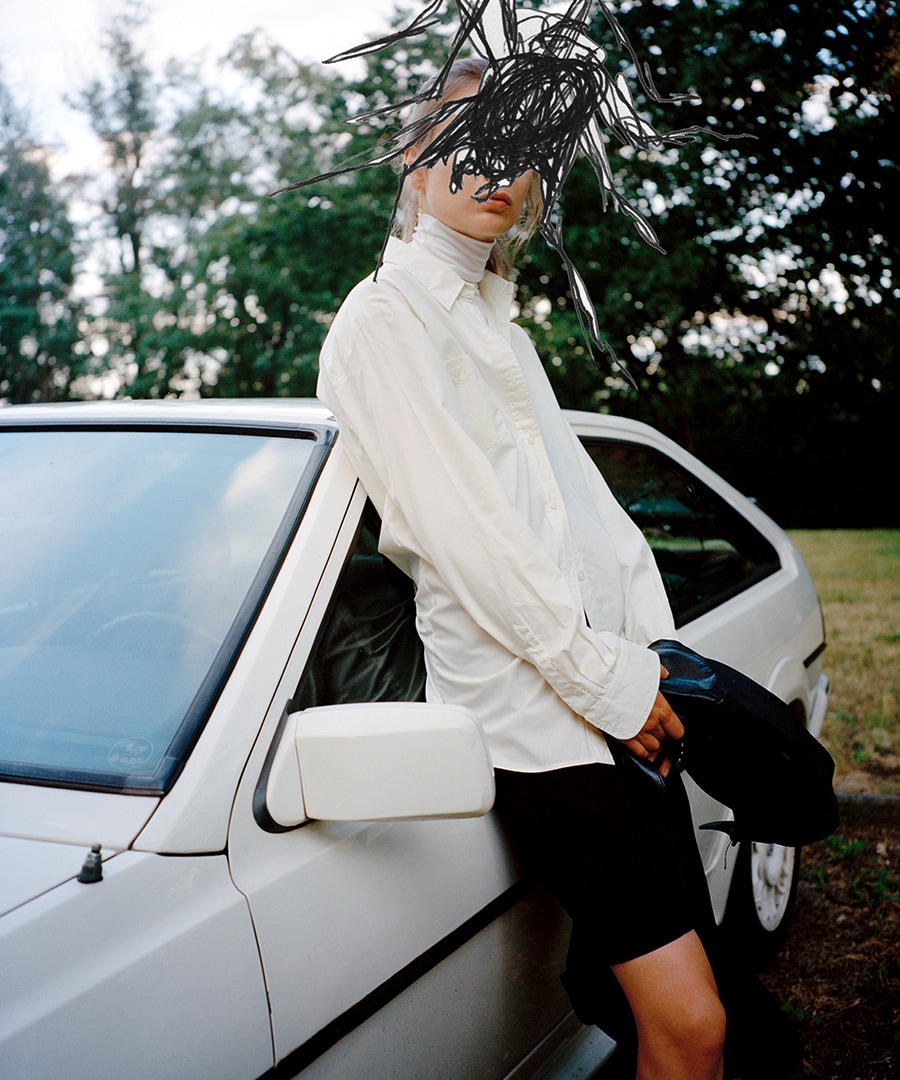
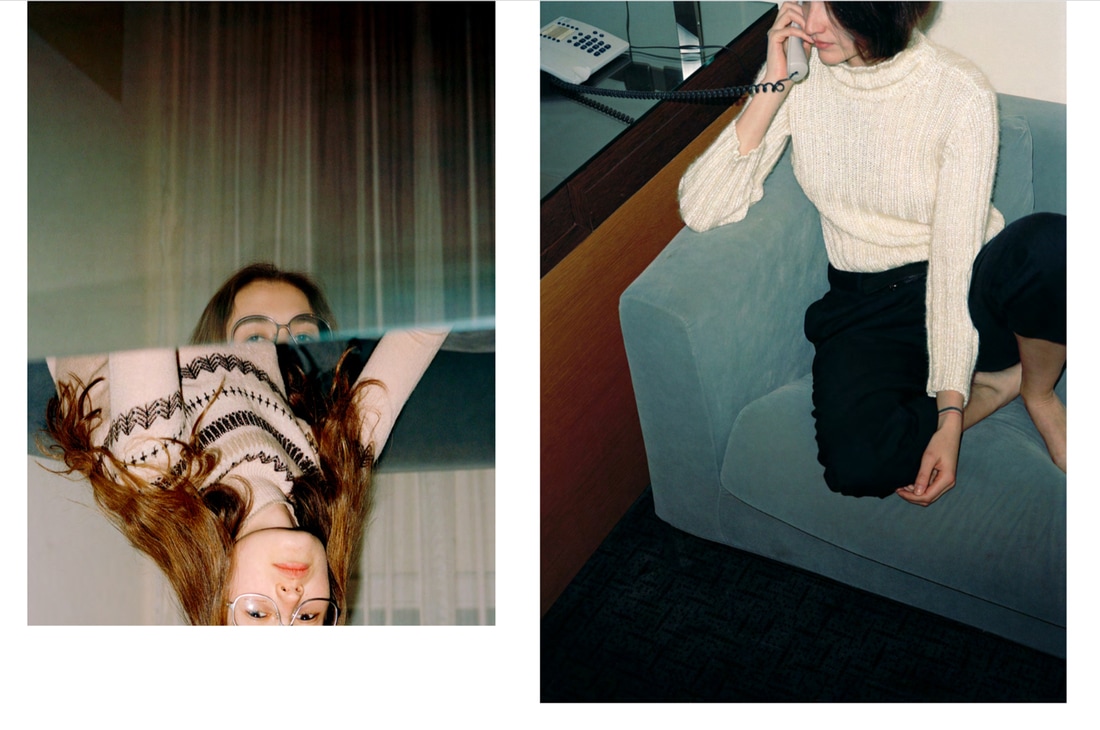
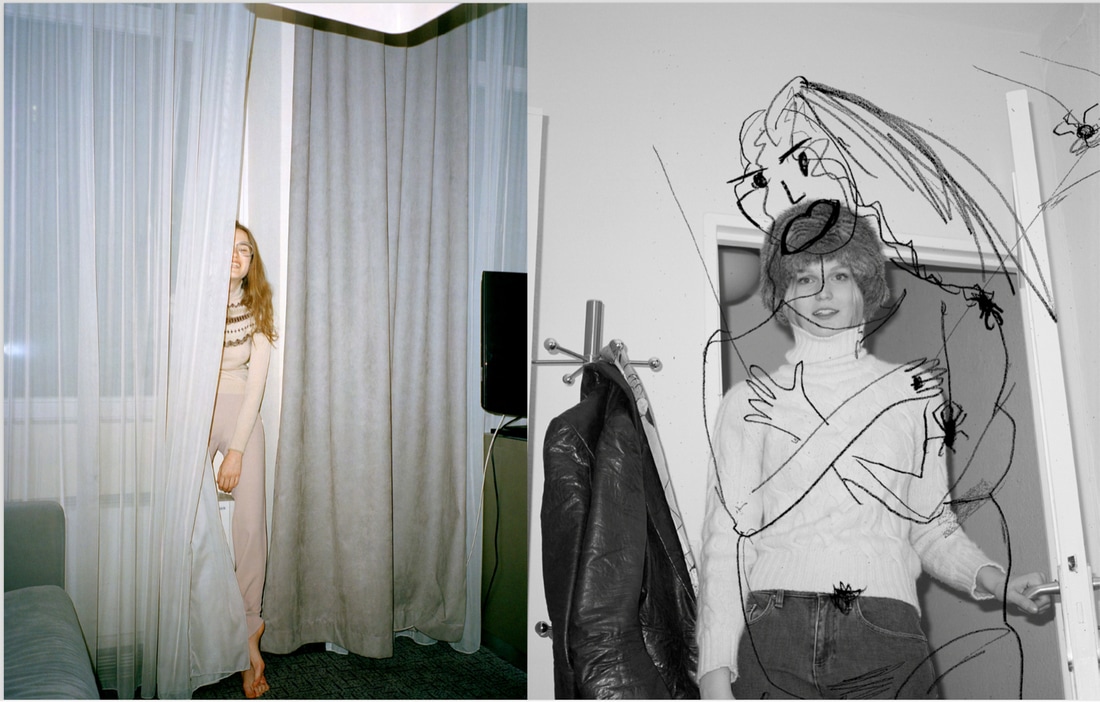
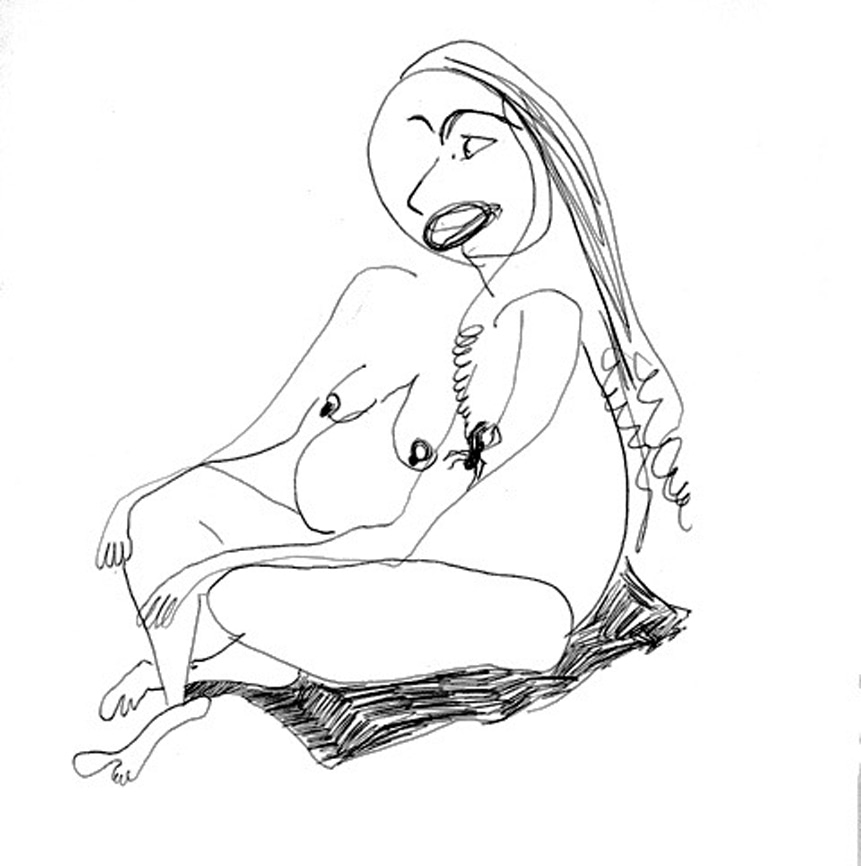
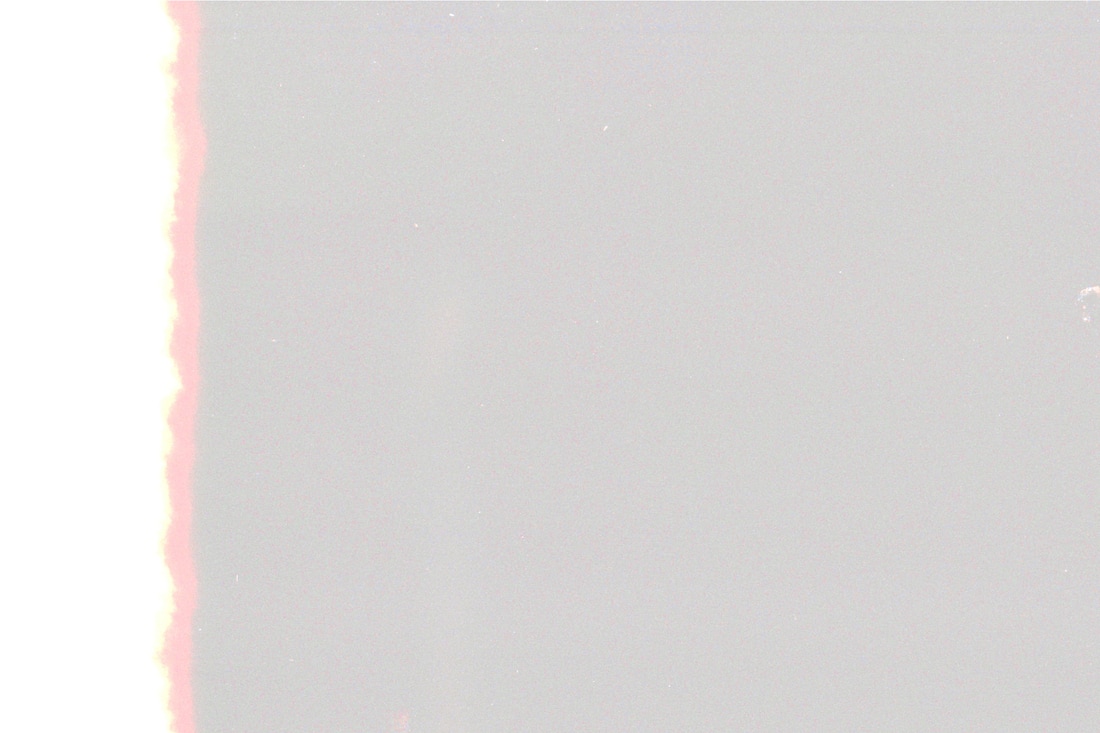

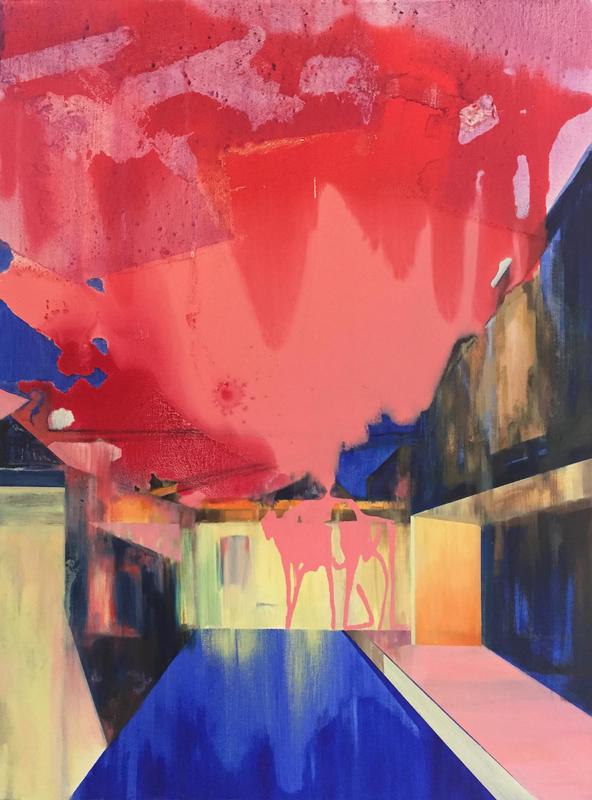


 RSS Feed
RSS Feed
